VAT Law Amendment From Jan 2023
UAE has come up with a VAT Law Amendment which will be implemented from January 2023 onwards. The previous amendment issued in 2017 was to introduce the VAT system from the beginning of January 2018. Current amendments surely impact the business in terms of VAT chargability and related administrative regulations in the coming year. Industries and businesses in UAE have to upgrade their system to adapt to the new amendments in order to avoid the penalties as well as complications of tax.
The novel amendment come up with 11 titles and 85 articles mentioning the alteration to each and every aspect of this amendment which would have an impact. The latest amendment is the outcome of the review of the constitution and several existing Federal Laws related to different sectors.
Overview of VAT Law Amendment
| Title 1 | Definition | |
| Article 1 | Definition | |
| Title Two | Tax Scope and Rate | |
| Article 2 | Scope of Tax | |
| Article 3 | Tax Rate | |
| Article 4 | Responsibility of Tax | |
| Title Three | Supply | |
| Chapter 1 | Supply of Goods and Services | |
| Article 5 | Supply of Goods | |
| Article 6 | Supply of Services | |
| Article 7 | Supply in Special Cases | |
| Article 8 | Supply Consisting of more than one components | |
| Article 9 | Supply Via Agent | |
| Article 10 | Supply Via Government Entities | |
| Chapter 2 | Deemed Supply | |
| Article 11 | Cases of Deemed Supply | |
| Article 12 | Exceptions from Deemed Supply | |
| Title Four | Registration and Deregistration | |
| Article 13 | Mandatory Tax Registration | |
| Article 14 | Tax Group | |
| Article 15 | Registration Exception | |
| Article 16 | Tax Registration of Government Entities | |
| Article 17 | Voluntary Registration | |
| Article 18 | Tax Registration for a non-resident | |
| Article 19 | Calculating the Tax Registration Threshold | |
| Article 20 | Capital Assets | |
| Article 21 | Tax Deregistration Cases | |
| Article 22 | Application for Tax Deregistration | |
| Article 23 | Voluntary Tax Deregistration | |
| Article 24 | Procedures, Controls and Conditions of Tax Registration and Deregistration | |
| Title Five | Rules Pertaining to Supplies | |
| Chapter 1 | Date of Supply | |
| Article 25 | Date of Supply | |
| Article 26 | Date of Supply in Special Cases | |
| Chapter 2 | Place of Supply | |
| Article 27 | Place of Supply of Goods | |
| Article 28 | Place of Supply of Water and Energy | |
| Article 29 | Place of Supply of Services | |
| Article 30 | Place of Supply in Special Cases | |
| Article 31 | Place of Supply of Telecommunication And Electronic Services | |
| Chapter 3 | Place of Residence | |
| Article 32 | Place of Establishment | |
| Article 33 | The Agent | |
| Chapter 4 | Value of Supply | |
| Article 34 | Value of Supply | |
| Article 35 | Value of Import | |
| Article 36 | Value of Supply and Deemed Supply for Related Parties | |
| Article 37 | Value of Deemed Supply | |
| Article 38 | Tax-Inclusive Prices | |
| Article 39 | Value of Supply in case of Discount or Subsidies | |
| Article 40 | Value of Supply of Vouchers | |
| Article 41 | Value of Supply of Postage Stamps | |
| Article 42 | Temporary Transfer of Goods | |
| Chapter 5 | Profit Margin | |
| Article 43 | Charging Tax based on Profit Margin | |
| Title Six | Zero Rates and exemptions | |
| Chapter 1 | Zero Rate | |
| Article 44 | Supply and Import Taxable at Zero Rate | |
| Article 45 | Goods and Services Subject to Zero Rate | |
| Chapter 2 | Exemptions | |
| Article 46 | Supply Exempt from Tax | |
| Chapter 3 | Single and Mixed Supplies | |
| Article 47 | Supply Consisting of More Than One Component | |
| Chapter 4 | Specific Obligations to Account for Tax | |
| Article 48 | Reverse Charge | |
| Article 49 | Import of Concerned Goods | |
| Chapter 5 | Designated Zones | |
| Article 50 | Designated Zone | |
| Article 51 | Transfer of Goods in Designated Zones | |
| Article 52 | Exceptions for Designated Zone | |
| Title Seven | Calculation of Due Tax | |
| Chapter 1 | Due Tax for a Tax Period | |
| Article 53 | Calculation of Payable Tax | |
| Article 54 | Recoverable Input Tax | |
| Article 55 | Recovery of Recoverable Input Tax in the Tax Period | |
| Article 56 | Input Tax Paid before Tax Registration | |
| Article 57 | Recovery of Tax by Government Entities and Charities | |
| Chapter 2 | Apportionment and Adjustment of Input Tax | |
| Article 58 | Calculating the Input Tax that may be Recovered | |
| Article 59 | Conditions and Mechanism of Input Tax Adjustment | |
| Chapter 3 | Capital Assets Scheme | |
| Article 60 | Capital Assets Scheme | |
| Chapter 4 | Adjustment of Tax after the Supply Date | |
| Article 61 | Instances and Conditions for Output Tax Adjustments | |
| Article 62 | Mechanism for Output Tax Adjustment | |
| Article 63 | Adjustment due to the Issuance of Tax Credit Notes | |
| Article 64 | Adjustment for Bad Debts | |
| Chapter 5 | Tax Invoices | |
| Article 65 | Conditions and Requirements for Issuing Tax Invoices | |
| Article 66 | Document of Supplies to an Implementing States | |
| Article 67 | Date of Issuance of Tax Invoice | |
| Article 68 | Rounding on Tax Invoices | |
| Article 69 | Currency Used on Tax Invoice | |
| Chapter 6 | Tax Credit Notes | |
| Article 70 | Conditions and Requirements for Issuing the Tax Credit Note | |
| Title Eight | Tax Period, Tax Returns, Settlement and Reclaiming of Tax | |
| Chapter 1 | Tax Period | |
| Article 71 | Duration of Tax Period | |
| Chapter 2 | Tax Returns and Tax Settlement | |
| Article 72 | Submission of Tax Returns | |
| Article 73 | Settlement of Tax | |
| Chapter 3 | Carrying forward the Excess of Recoverable Tax and Tax Recovery | |
| Article 74 | Excess Recoverable Tax | |
| Chapter 4 | Other Provisions on Recovery of Tax | |
| Article 75 | Tax Recovery in Special Cases | |
| Title Nine | Violations and Penalties | |
| Article 76 | Administrative Penalties Assessment | |
| Article 77 | Tax Evasion | |
| Title Ten | General Provisions | |
| Article 78 | Record-keeping | |
| Article 79 | Stating the Tax Registration Number | |
| Article 79 (bis) | Statute of Limitation | |
| Title Eleven | Closing Provisions | |
| Article 80 | Transitional Rules | |
| Article 81 | Revenue Sharing | |
| Article 82 | Executive Regulation | |
| Article 83 | ||
| Article 84 | Cancellation of Conflicting Provisions | |
| Article 85 | Effective Date of this Decree-Law and its Application |
VAT Law Amendment And Impact For Business
The most important changes in the VAT Law amendment related to the time period for the FTA to raise a tax audit or issue a tax assessment. Under the current law, in Article 42 of the Federal Law on Tax Procedures (Federal Decree-Law No. 7 of 2017), the FTA generally cannot conduct a tax audit after five years from the end of a tax period (increased to 15 years in the case of tax evasion or where a taxpayer fails to register for VAT).
The VAT Amendment Law inserts a new Article 79 bis into the VAT Law which means that the standard five-year period can be increased, giving the FTA more time to challenge VAT filings.
Impacts On Business
- The significant increase in the period for the FTA to raise tax audits, combined with the tightening up of the use of voluntary disclosures, should prompt all taxpayers to ensure their tax affairs are in order.
- After this five-year period has expired, no corrections via a voluntary disclosure will be permitted. This is a change to the current position where audited taxpayers could correct any errors by using a voluntary disclosure.
- The requirement to issue a credit note within 14 days is a new addition to the VAT Law. Businesses should therefore ensure they have appropriate systems in place to correctly identify cases where a tax credit note needs to be issued, and that this is issued within the 14-day period.
- Businesses making periodic supplies should review both their current contractual arrangements and their systems to ensure they have the procedures in place to issue tax invoices within 14 days of each supply.
- After Jan. 1, 2023, importers of any of the new zero-rated goods should ensure that they correctly levy VAT at the zero rates and ensure that import documentation such as bills of lading, commercial invoices, and customs declarations clearly support the nature of the imports to ensure that the zero rate can apply.
- Suppliers of hydrocarbons that are not pure hydrocarbons will need to account for VAT at the standard rate on their supplies from Jan. 1, 2023.
- Taxpayers using agency arrangements will need to carefully consider the impact of the changing residence requirements on their VAT position. In particular, principals will need to verify the place where the agent is established or has a fixed establishment in order to correctly identify the VAT implications of their transactions.
More Clarity And Enforcement
The new VAT amendment provides more clarity and enforce the business to maintain a full-proof record system regarding their transaction and the nature of business. When the business becomes more globalised and involves parties from different locations, the VAT system has to be revised accordingly. The new amendment focuses a lot on those key elements and enforces business people to move to a fully systematic business approach.








